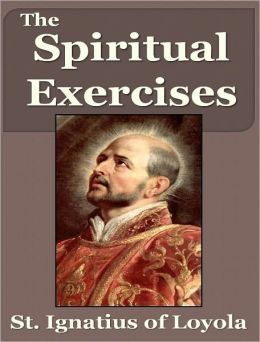An excerpt from Dangerous Ideologies II: The Psychobabble Quack Cult
His name was Iñigo de Loyola. He was a Spanish knight of the lower Basque nobility. In the early 1520s, after a momentous battle against the French in Pamplona, he severely injured his leg during the combat. While bedridden and under severe pain, he almost died from profuse bleeding. He managed to recover, and later began to read books on the heroic lives of the Saints.
How did the Saints manage to go so many days without eating and yet keep their composure, and how did they maintain their dignity and peace of mind even under physical punishments or the duress of prison? Loyola ultimately got out of bed, but walked with a limp for the rest of his life. He could no longer live as a knight, so he imitated the heroic walks of the Saints.
He gave up his weapons and fine clothes at a shrine across his route in northern Spain, and then wandered barefoot, limping with a staff, and wore a coarse cloak with relic pieces and crosses, only carrying a dirty leather bag to help him along the way. Through this hard journey, during the 1520’s, he began to keep a rough journal.
This journal would later become his famous Spiritual Exercises during the 1530s when he began his university studies to become a priest. By the 1540s, he already had a group of devotees educated in the method of the Exercises. What was inside those exercises that made them so powerful?
The Spiritual Exercises were the first, modern psychotherapy self-help manuals in disciplining the mind. Through his complete change and turnaround, from killing off his old Spanish Knight self, and remaking himself into a Catholic Saint, he attained something that only a human could create: the death of the old self into a resurrected new, transformed other – all through simple mind exercises.
A priest who has already inducted himself into the Exercises leads the adept through the four to five-week process. First, the acolyte has to examine his or her life to find the faults, weaknesses or sins that, which have kept the person from attaining true spiritual power, or mental freedom and peace.
After confessing and acknowledging one’s sins, and next, actively changing his or her habits in transforming the vices into virtues, the devotee later experiences the life of Christ, and especially his Passion on the Cross through understanding the hard process of transformation.
The spiritual adviser or priest leads the adherent through controlled breath work, visualizations, vocal, repetitive prayers, and then participation in the Mass. After each session, he or she feels energized and more transformed, while the follower truly feels the power in belonging to the militant body of Christ. The most important part comes at the end of the session, where the votary learns the discernment of spirits.
The discernment of spirits implies understanding the thoughts, ideas, feelings, experiences, images and beliefs that come into his or her mind. Thoughts of doubt, laziness, sensual pleasure, guilt or nervousness represent demonic attacks, and they are let go, while thoughts or images that bring peace, spiritual bliss and joy come from the Holy Spirit. Once the adept successfully finishes the Exercises, he or she transforms into the disciplined believer-warrior. The worshipper has assumed control over his or her own ‘spiritual mind.’
The Order of Loyola, or the Company of Jesus, was also an authoritarian, military like Company under the direction of the Jesuit General. This mental practice was for the ‘greater glory of God,’ or really, the glory of the Catholic Church. Loyola wanted fanatical believers to defend the Church against the dangers of Protestant heresy, or against any non-Catholic belief systems across the globe.
Less than fifty years after the founding of the Company of Jesus, or the Jesuits, they had controlled most of the Catholic Universities in Europe, they became the confessors to Catholic monarchs, they built Catholic Schools across Europe and the American Continent, they had sent missionaries across the Earth in order to convert the heathens, and the Religious Wars had taken off across Europe. This religious order even became one of the wealthiest religious corporations in human history.
.

No comments:
Post a Comment